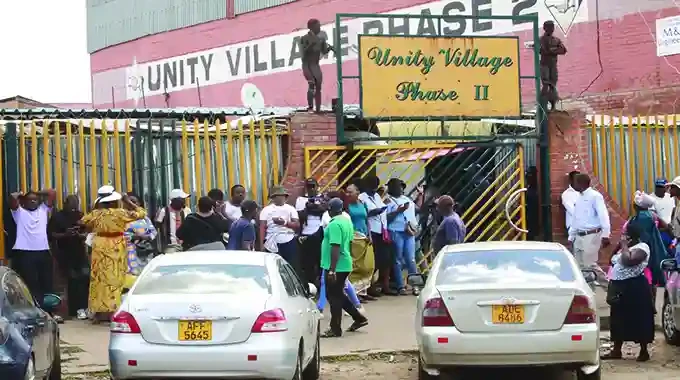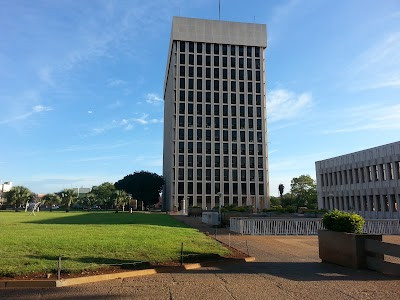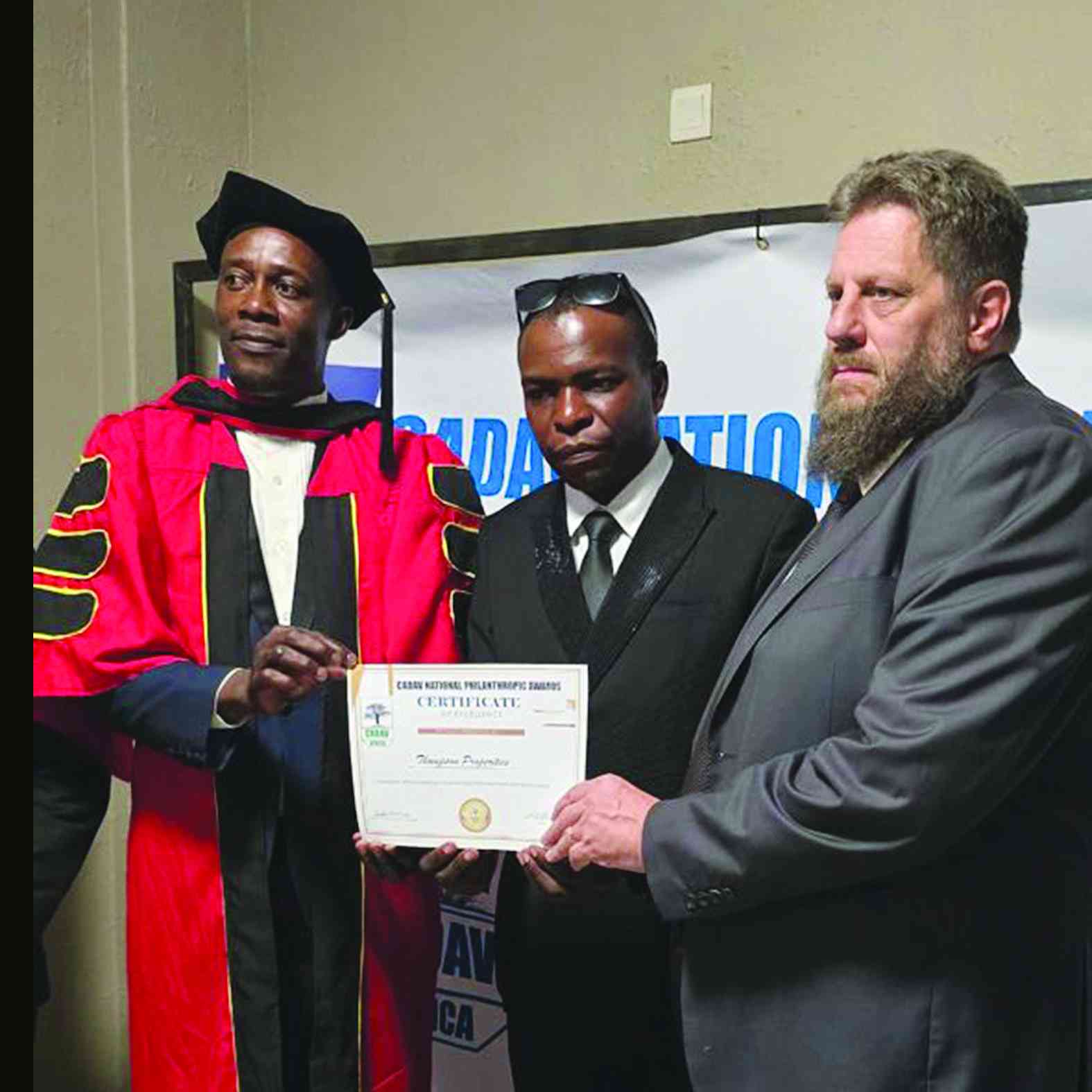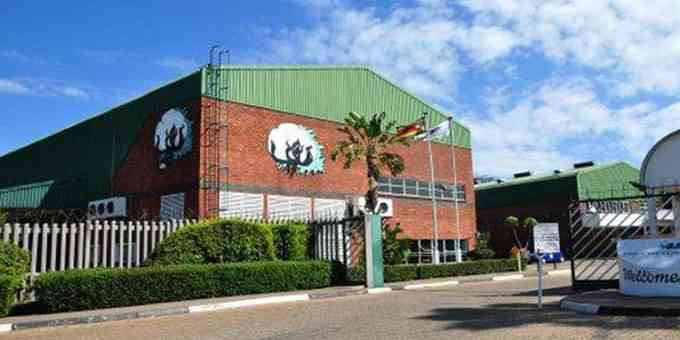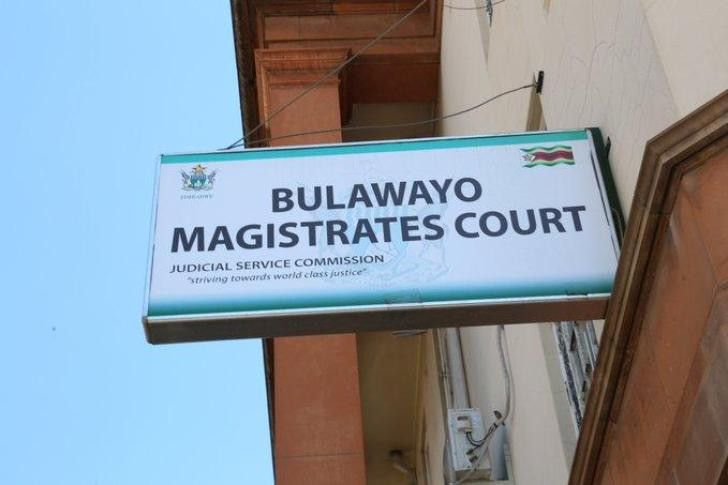Temperatures usually drop to five degrees Celsius in the mountainous Boterekwa area in Shurugwi with the cool weather expected throughout the winter season.
Zodwa Jamela (35) is one such woman who has defied all odds and the extreme cold weather by joining the gold panning bandwagon.
She is among a myriad of women who are prospecting for gold along Mutevekwi River and the Boterekwa valley in Shurugwi.
Known for its mineral-rich resource, Boterekwa, which forms part of the Great Dyke, a 550km stretch of mineral belt across the country, is home to thousands of mineral predators.
A large chunk of the women are involved in artisanal and small-scale gold mining and according to the Zimbabwe Miners Federation, over 500 000 people in the country had their livelihood augmented by the artisanal and small-scale mining sector, mainly gold mining.
More people, including women, pushed further into extreme poverty due to detrimental economic policies coupled by El Nino-induced drought, are now rummaging for gold, mainly through riverbed mining.
Keep Reading
- Chivhu man in court for bestiality
- Man murders ex-wife for rejecting him
- Scenic Shurugwi loses lustre
- Businesswoman remembers female prisoners
Early this year the government introduced the ZiG replacing the battered Zimdollar that had experienced a sharp depreciation.
The uncertainty of ZiG has caused businesses and retailers to offer different forex exchange rates thereby leaving a number of families failing to make ends meet.
The new currency is not even available on the market.
Every morning Jamela, a mother of three, braves the chilly waters in Mutevekwi River where she prospects for gold with fellow villagers.
“We try to come early in the morning to evade police raids,” Jamela told Southern Eye on Sunday.
“Normally, the police pounce in the afternoon.
“We don’t mind the chilly morning as we have no option.”
Jamela said she was pushed to prospect for gold because of economic hardships.
“We hoped that our lives would change after the introduction of the ZiG,” she said.
“We have not seen the impact of the change in currency.
“The new currency is not available and we are suffering.
“Our situation was worsened because there was nothing from the fields because of the drought.
“I come here with my younger sister and we help each other.
“On a good day we produce a point, which we sell for US$5.
“Sometimes, we go home empty-handed.”
According to the gold price forex market, a point refers to the smallest unit of measurement used to indicate price movement.
Gogo Chitimbe, a pensioner, who was among a group of women prospecting for gold on the riverbed, said she looks after three granddaughters whose parents are in South Africa.
“My daughters are working in South Africa and for some time, they have not been sending any money at all,” she said.
“I used to work in Zimasco many years ago, but the pension has been eroded by inflation.
“I come here with one of my eldest granddaughters.
“Coming here and prospecting for gold is the only way we can help ourselves.”
In the latest report on the level of poverty in older age in Zimbabwe, the elderly poverty rate stood at 80%, as of 2021.
Previous monetary policies have not been prioritising pension allocations as government failed to provide social security and financial stability for its aging population.
However, education, health and pension took the lead in this year’s national budget, constituting a significant 31,73% of the budget.
“This commitment carries several significant implications and signifies the government's commitment to key areas crucial for societal development and well-being,” said Brian Chirwa, a human resources expert.
“Adequate funding for pensions helps to ease poverty among the elderly, provides a safety net for individuals in their later years, and promotes social cohesion and intergenerational equity.”
The Commission of Inquiry into the conversion and loss of value of pension schemes, instituted by President Robert Mugabe in 2015, established that there were poor regulatory mechanisms by Insurance and Pensions Commission.
Illegal gold mining activities in the Boterekwa area are not only associated with higher levels of violent crime, but also increase unforeseen risks and cause other negative unintended consequences for women.
“Sometimes we are raided by the police or we are chased away from the riverbed by men,” said Jamela.
“We face a lot of challenges, but we have no option.”
A number of mines upstream the Mutevekwi River release dangerous substances such as cyanide and mercury that are harmful to fish, livestock and humans, but Jamela and fellow miners are not perturbed.
“The cyanide-contaminated water is affecting us,” Jamela said.
“We feel some itching the moment we get into the water.”
Alluvial gold panners said the proliferation of small-scale miners in the area was a cause for concern as most of them were discharging toxic waste in the rivers.
“Small-scale miners up there are using chemicals such as cyanide and mercury, which at the end of the day are discharged into rivers to the detriment of the lives of human beings and animals,” said a gold panner who preferred to be called Mandebvu.
“There is also rampant leaching spearheaded by the Chinese companies in the Boterekwa area, through the discharge of toxic effluent into this river.”
A 2020 survey carried out by the Environmental Management Agency (EMA) suggested that 11 163 hectares of land and a stretch of 1 555km riverine ecosystems in Zimbabwe have been degraded by illegal mining activities.
According to EMA, the agency, in partnership with the law enforcement agents, has put in place strategies to protect the environment.
Two years ago, Ansh Blue 4/8, a gold mining company owned by Chrispen Mahara in joint partnership with Chenjxi, a Chinese company, was fined $400 000 for flouting environmental regulations.
Medical doctor Johannes Marisa said cyanide prevents cells from using oxygen, which might cause cells to die.
“The heart, respiratory system and central nervous system are most susceptible to cyanide poisoning,” Marisa said.
He said exposure to lower levels of cyanide may result in breathing difficulties, heart pains, vomiting, blood changes, headaches, and enlargement of the thyroid gland.
Despite the government having banned riverbed mining across the country in September 2020, massive riverbed mining continues along Mutevekwi River threatening livelihoods and causing degradation of aquatic and terrestrial biodiversity in the area.
“We know what we are doing is illegal, but we have no option,” said Gogo Chitimbe.
“Sometimes we are arrested and fined.
“If the government resumes food relief programmes you won’t see me here.”
Several women gold panners said they were compelled to do so due to lack of policies and mechanisms to help them cope with crises and shocks such as drought.
They said there were no policies and programmes in place to reduce poverty and vulnerability within communities.
However, Shurugwi North MP Joseph Mpasi said he was working on a number of programmes to improve the lives of people, especially vulnerable groups.
“We have social protection systems in place to help the poor and vulnerable groups of people across the constituency,” he said.
“We are working on a number of programmes to address hunger and help communities cope with shocks.
“These programmes include food relief and we are also resuscitating a number of irrigation schemes as part of our climate mitigation programmes.”
The MP said he had gone an extra mile to augment the food aid programmes by importing grain.
He said they were working to regularise small-scale mining activities in Boterekwa with the view of embracing women in the programmes.
The government is also developing a gender-inclusive mineral-development policy, which will cater to special interest groups that include women.
Mpasi encouraged people to desist from illegal mining activities.
According to the World Bank, up to 90% of artisanal and small scale miners worldwide operate without licenses and permits required by law. Efforts to improve the sector have yet to achieve a significant impact at scale, especially for women, who disproportionately bear the adverse effects of artisanal and mining activities and remain under-protected.
This story was produced with support from the WAN-IFRA Women in News Social Impact Reporting initiative.

